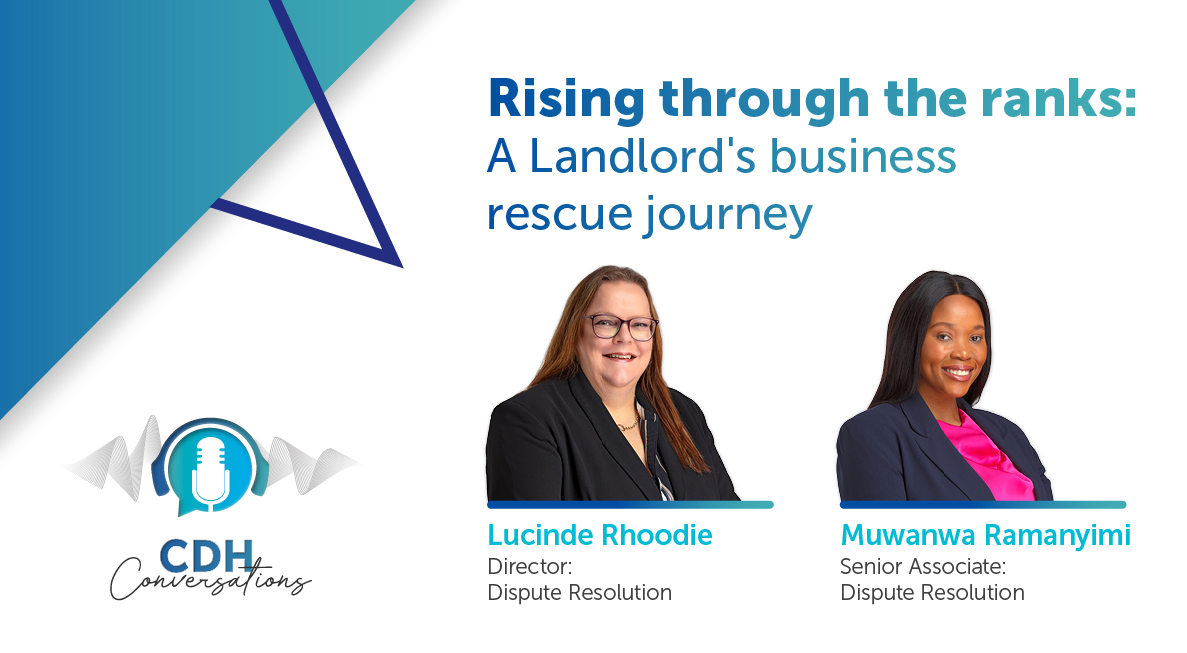An end to secret state surveillance under RICA
At a glance
- The Constitutional Court of South Africa declared the Regulation of Interception of Communications and Provision of Communication-Related Information Act (RICA) unconstitutional for failing to adequately protect the right to privacy, freedom of expression, access to courts, and legal privilege.
- The case involved the surveillance of individuals and interception of their private communications. RICA regulates the interception of various forms of communication, including oral conversations, email, and mobile phone communications.
- ]The Court found that RICA lacked safeguards such as notification to the subject of surveillance, independent judicial authorization, protection for journalists and practicing lawyers, and proper management of intercepted information. Bulk surveillance was also deemed unlawful without proper legal authorization. The Court introduced additional provisions to address these shortcomings.
In the present case, the court was called upon to consider intrusions in the context of surveillance of individuals, including the interception of their private communications. RICA regulates the interception of both direct and indirect communications, which are defined broadly to include oral conversations, email and mobile phone communications that are transmitted through a postal service or telecommunication system.
The Applicants in the High Court were AmaBhungane Centre for Investigative Journalism NPC and Mr Sole, a journalist who has been subject to state surveillance. Mr Sole suspected his communications were being intercepted. After an inquest into the reasons for the surveillance, Mr Sole could not obtain any information regarding the reason for and lawfulness of the interception. The Applicants accordingly approached the High Court alleging that RICA is unconstitutional to the extent that it fails to provide adequate safeguards to protect the right to privacy.
The High Court declared RICA unconstitutional to the extent of the following failures:
- No provision is made in RICA for a subject of surveillance to be notified that she or he has been subject to surveillance;
- A member of the Executive (in this instance, the Minister of Justice) is given an unfettered discretion in terms of RICA to renew the term of a designated Judge and therefore fails to ensure the designated judge’s independence;
- RICA does not contain an adversarial process or other mechanism to ensure protection of the subject of state surveillance in the ex parte process;
- RICA lacks safeguards concerning custody and management of information gathered by surveillance;
- RICA fails to provide any special circumstances where the subject of surveillance is a practising lawyer or a journalist.
The Constitutional Court (CC) had to consider whether or not to confirm the order of constitutional invalidity of certain provisions of RICA based on the aforementioned grounds. The CC explained that “the country’s apartheid history was characterised by the wanton invasion of privacy of people by the state through searches and seizures, the interception of their communications and generally by spying on them in all manner of forms”. The CC held that the constitutionally-protected right to privacy seeks to be one of the guarantees that South Africa will not again act like the police state that was under apartheid. As the surveillance and interception of a person’s communications under RICA is a “highly invasive violation of privacy”, it infringed section 14 of the Constitution. The CC then considered whether the limitation of this right was reasonable and justifiable and whether RICA contained sufficient safeguards to reduce the risk of unnecessary intrusions.
In respect of the notification issue, the CC found that a blanket prohibition on notification facilitates abuse of interception directions, which are granted in complete secrecy. In the event that such direction ought not to be granted, it would never be challenged as the subject of surveillance would never know of such direction. The court held that “an individual whose privacy has been violated in the most intrusive, egregious and unconstitutional manner never becomes aware of this and is thus denied an opportunity to seek legal redress for the violation of his or her right to privacy”. The lack of notification facilitates the abuse of the process under the cloak of secrecy.
The CC held that post-surveillance notification would serve a purpose comparable to less restrictive means and should therefore be the default position.
Accordingly:
- RICA was held to be unconstitutional insofar as it failed to provide for notification to the subject of surveillance as soon as it can be given without jeopardising the purpose of the surveillance.
The open-ended discretion in respect of appointments of the designated Judges and their renewal raised concern for the CC and it held that a reasonable apprehension that the independence of the designated Judge may be undermined by external interference by the Executive could be raised. RICA does not provide the designated Judge with an adequate level of structural, operational or perceived autonomy. Therefore, the CC held that:
- RICA was unconstitutional to the extent that it fails to ensure adequate safeguards for an independent judicial authorisation of interception.
Regarding the fact that interception directions were applied for and granted on an ex parte basis, the CC held that means to temper the effects of the clandestine, one-sided nature of the process do exist, and that such means constitute less restrictive means to achieve the purpose of surveillance. The choice of what measures would be the most suitable was left to Parliament to decide. Accordingly:
- RICA was unconstitutional to the extent that it lacks sufficient safeguards to address the fact that interception directions are sought and obtained on an ex parte
The next issue which the CC considered was the custody and management of information obtained through surveillance. The Applicants argued that there is insufficient regulation in RICA regarding the storage, handling and destruction of the intercepted information and that intrusions into the privacy of subjects of state surveillance may be severe due to this lack of regulation. The CC held that:
- RICA was unconstitutional to the extent that it fails to adequately prescribe procedures which ensure that data obtained from the interception of communications is managed and used lawfully and is not unlawfully interfered with.
On the practising lawyers and journalists issue, the CC acknowledged firstly, that the confidentiality of journalists sources are protected by the rights to freedom of expression and the media and secondly, that legal professional privilege is an essential part of the rights to a fair hearing and a fair trial. The weight of these rights justified special consideration being given to the importance of the confidentiality of both journalists’ sources, as well as lawyer-client communications. Accordingly:
- RICA’s failure to provide special consideration for practising lawyers and journalists, was unconstitutional.
Lastly, the CC addressed bulk surveillance, which involves, inter alia, the interception of all internet traffic that enters or leaves South Africa, including the most personal information such as emails, video calls, location, and browsing history. Bulk surveillance must have a legal basis, i.e. must be authorised in terms of legislation. The Applicants argued that bulk surveillance is not authorised by RICA or any other law. The CC agreed on this point and therefore held that:
The practice of bulk surveillance is unlawful and invalid, as there is no law that authorises it.
The CC accordingly dismissed the appeal, with costs and the declaration of unconstitutionality of the High Court was confirmed, as set out above. The declaration of unconstitutionality took effect from the date of the judgment, suspended for 36 months. However, in the interim suspension period, the Court held that RICA shall be deemed to include additional sections which deal with disclosure that the person in respect of whom a direction, extension of a direction or entry warrant is sought, is a journalist and practicing lawyer and post-surveillance notification.
In respect of the disclosure relating to a journalist or practicing lawyer, additional provisions have been included which provide the designated Judge with a discretion to issue the direction or entry warrant subject to conditions as may be necessary to protect the confidentiality of a journalist’s source or to protect the legal professional privilege enjoyed by a practising lawyer’s clients.
Further, in respect of the new provision regarding post-surveillance notification, an applicant for the direction or any other law enforcement officer, must notify the subject of the surveillance within 90 days of the date of expiry of the direction and within 15 days of doing do, must certify in writing to the designated Judge that the person has been notified. In the event that the notification cannot be given without jeopardising the purpose of the surveillance, the designated Judge may upon application by a law enforcement officer, direct that the giving of notification in that subsection be withheld for a period which shall not exceed 90 days at a time or two years in aggregate.
This judgment provides much-needed protection for subjects of state surveillance, as persons now have a right to be notified of their surveillance and to challenge such surveillance in the event of privacy infringement. Furthermore, proper procedures will be put in place for management and storage of the information to restrict the extent of access to and use of the stored information in order to limit the infringement of a person’s privacy. Sources to journalists and clients of attorneys are now offered special protection as an interception direction will be more challenging to obtain or granted subject to conditions in light of the new provisions read-in by the Constitutional Court.
In line with our constitutional values of transparency and accountability, unfettered secret state surveillance has been brought to an end.
The information and material published on this website is provided for general purposes only and does not constitute legal advice. We make every effort to ensure that the content is updated regularly and to offer the most current and accurate information. Please consult one of our lawyers on any specific legal problem or matter. We accept no responsibility for any loss or damage, whether direct or consequential, which may arise from reliance on the information contained in these pages. Please refer to our full terms and conditions. Copyright © 2026 Cliffe Dekker Hofmeyr. All rights reserved. For permission to reproduce an article or publication, please contact us cliffedekkerhofmeyr@cdhlegal.com.
Subscribe
We support our clients’ strategic and operational needs by offering innovative, integrated and high quality thought leadership. To stay up to date on the latest legal developments that may potentially impact your business, subscribe to our alerts, seminar and webinar invitations.
Subscribe




